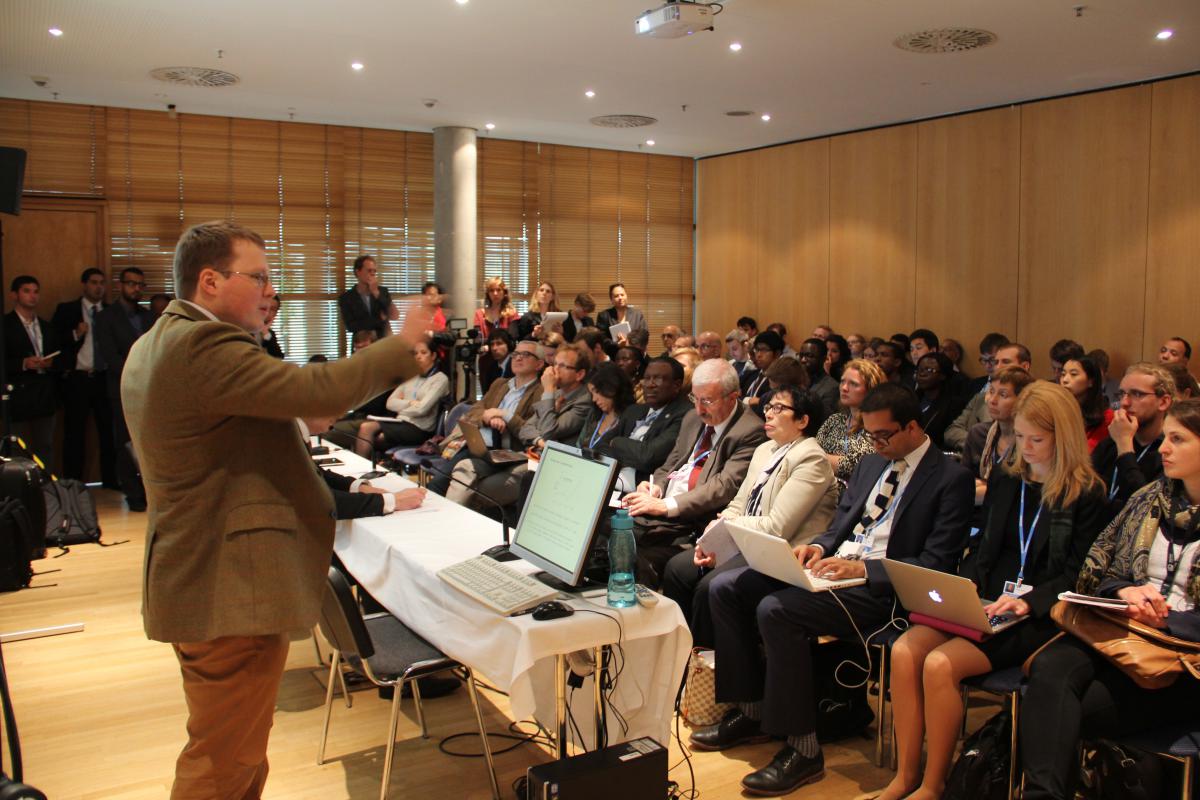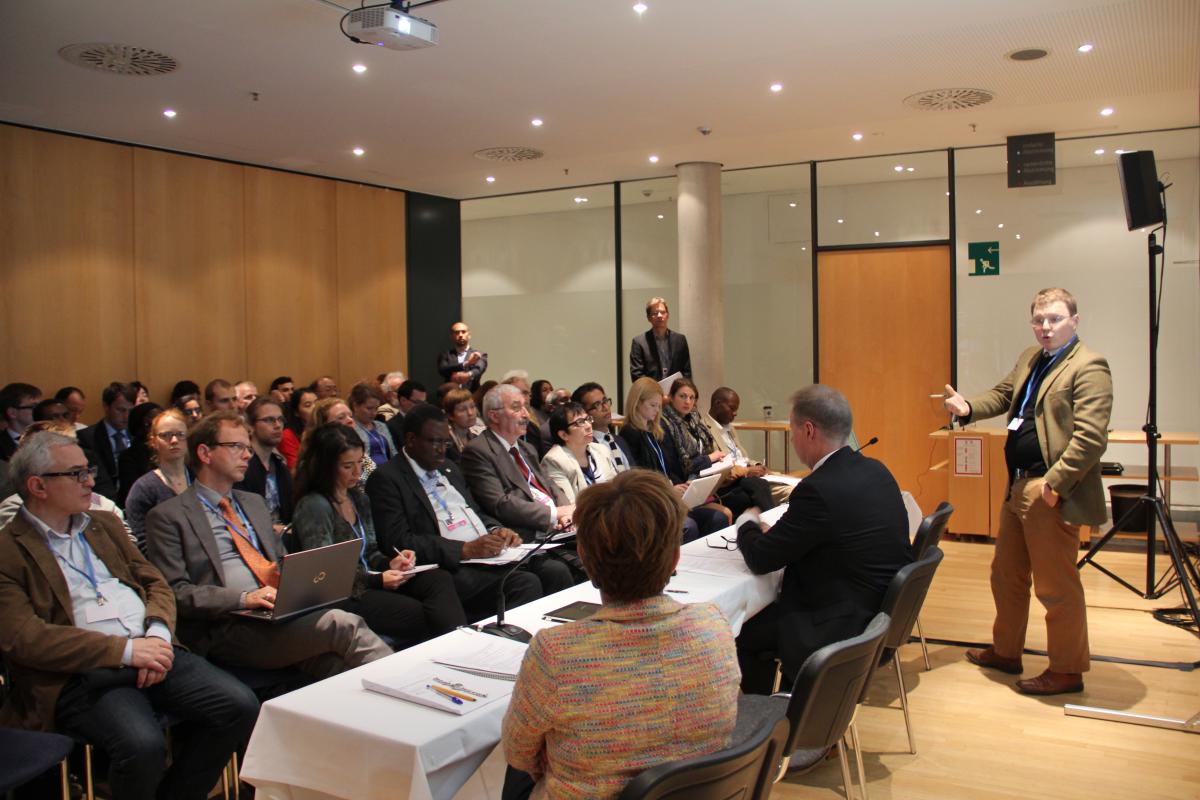Carbon subsidies + Climate Change – Morocco Includes Fossil Fuel Subsidy Reform within National Contribution Towards UNFCCC
Government negotiators are meeting in Bonn for climate talks this week (1-11 June 2015), to prepare for negotiations in Paris towards a climate deal at the end of the year. At the time of writing 39 countries have submitted their Intended Nationally Determined Contributions or INDCs. Morocco launched its INDC at a National Conference on Climate Change, in Rabat on 2nd June 2015, where the importance of reducing subsidies to fossil fuel was highlighted by the head of government and the minister of Environment as a matter of coherence in energy policy. Morocco submitted its INDC to the UNFCCC on June 5th 2015.
The INDC outlines a vision for Morocco to 2030 and rests, to a large extent, on a major transformation of the energy sector, particularly due to increasing water stress. This transformation notably entails “Substantially reducing fossil fuel subsidies, building on reforms already undertaken in recent years” and going for “50% renewable energy electricity production by 2025.
A number of countries are now considering the inclusion of fossil fuel subsidy reform as part of a package of fiscal instruments and policy tools at government’s disposal to meet nationally proposed emission reduction targets. Beyond fossil fuel subsidy reform, Mexico have included pricing of carbon in their INDC to address the environmental externalities of energy use.
On the sidelines of the Bonn talks, a technical side event was held on Tuesday 2nd June to highlight the roll of fossil fuel subsidies within the context of the climate change negotiations. The event, entitled ‘carbon subsidies + climate change’, discussed how fossil fuel subsidies increase greenhouse gas emissions and their reform would lead to significant reductions. National actions such as the inclusion of fossil fuel subsidies within INDCs can drive these reforms.
This event is part of a series being organised in the lead up to Paris to raise the issue of fossil fuel subsidies and their reform up the agenda. Previous events for UNFCCC participants having been held in February 2015 in Geneva and in December 2014 in Lima. The Bonn side event was organised by the Global Subsidies Initiative (GSI) with support from the Nordic Council of Ministers, and in collaboration with Denmark and the Friends of Fossil Fuel Subsidy Reform to enable parties and observers to find out more and hear from researchers about the impact of fossil fuel subsidies on climate change and the management of their reform.
Hans Jakob Eriksen, Special Advisor, Ministry of Climate, Energy and Building, Denmark opened the meeting describing the work of the Friends of Fossil Fuel Subsidy Reform and recent launch of the International Communiqué on fossil fuel subsidy reform. The communiqué calls for transparency and communication on fossil fuel subsidies, ambition and action on their removal, and targeted support to countries to enable smooth and sustainable reforms to take place. Currently the Friends countries (Costa Rica, Denmark, Ethiopia, Finland, New Zealand, Norway, Sweden and Switzerland) along with France and the US have endorsed the communiqué in the lead up to Paris CoP21. The event was an opportunity to promote the Communiqué with parties at the UNFCCC.

Radeslow (Radek) Stefanski, University of St. Andrews, then described a global model which looks at the drivers of GHG emissions across 170 countries and finds that subsidies to fossil fuels drove 36% of emissions between 1980 and 2010. The research also finds that with the removal of subsidies global gross GDP would have been 1.7% higher, noting that fossil fuel wedges amounted to 3.8% of global GDP in 2010, saying that this amounts to almost twice as much as IPCC estimates of the cost of climate change in 50 years. Laura Merrill, Senior Researcher, with the Global Subsidies Initiative of IISD described the current window of opportunity for reducing fossil fuel subsidies through a managed process of getting the energy prices right, building support for reform and mitigating any impacts within the population as described within the GSI Guidebook to Fossil Fuel Subsidy Reform. She also explained the co-benefit of emissions reductions (global estimates of reductions of between 6-13% by 2050) from reform via the Global Subsidies Initiative-Integrated Fiscal model (GSI-IF model) which enables countries to estimate emissions reductions from both fossil fuel subsidy reform and carbon taxation and is currently available for 20 countries . Average reductions from the removal of fossil fuel subsides across these countries amounts to around 10%. With further reinvestment of savings from subsidy reform into renewable or energy efficiency this reduction can be increased on average up to 17%. Countries can follow a four step process to include this issue within their INDCs as outlined below.

There was ample time for discussion and the audience responded with questions about the inclusion of wording with the UNFCCC around fossil fuel subsidy reform, the political economy of subsidy reform, the difficultly of ring-fencing savings for reinvestment into productive sectors and working cash transfer systems, and the broader questions linked to moves within economics to place positive values on natural capital in terms of the ecosystem benefits provided.

The issue of fossil fuel subsidies was also raised by New Zealand within the Technical Experts Meeting (TEM) on renewable energy supply also held during the first week of Bonn. A separate report published by GSI in December last year explains that incumbent fossil fuel subsidies can hold renewables back in that they create an un-level energy playing field on which renewables must compete.
For more information on the GSI-IF model, including fossil fuel subsidy reform within INDCs, or the international Communiqué please contact GSI.

The side-event, research and reporting has been made possible with the support from the Nordic Council of Ministers.
Further videos on fossil fuel subsidy reform, climate change, clean energy and INDCs:
- http://www.iisd.org/video/maximizing-contributions-emission-mitigation-fossil-fuel-subsidy-reform
- https://www.youtube.com/watch?v=w7f2N4wPjlw
Further reporting around the event:
- UNFCCC Newsroom: http://newsroom.unfccc.int/unfccc-newsroom/big-positive-climate-impact-by-cutting-fossil-fuel-subsidies/
- ENB Side-event Coverage: http://www.iisd.ca/climate/sb42/enbots/2jun.html
- Nordic Council of Ministers: http://www.norden.org/en/news-and-events/news/big-positive-climate-impact-by-cutting-fossil-fuel-subsidies
For more information about fossil fuel subsidy reform and the potential for emissions reductions, please contact Laura Merrill at lmerrill@iisd.org.
